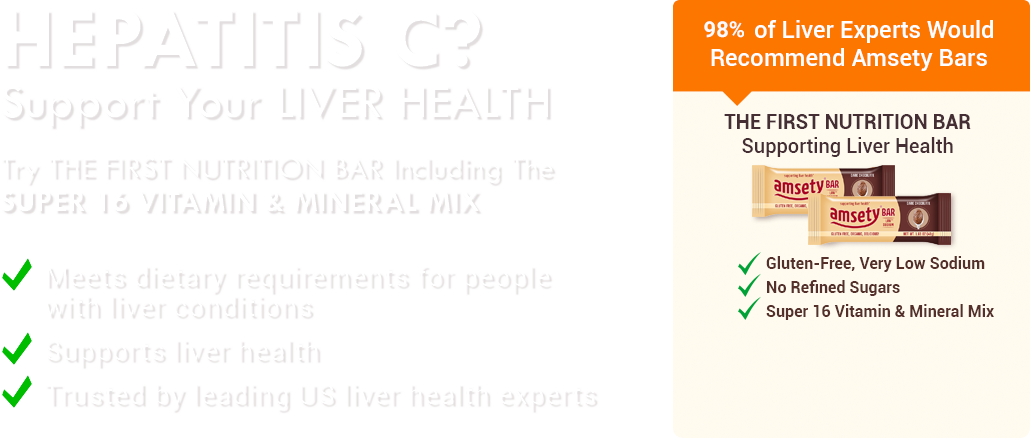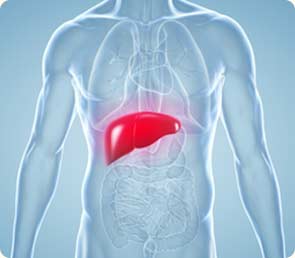
Only available here!

Read More About Hepatitis C



Hepatitis C is a liver inflammation caused by the hepatitis C virus (HCV). The virus is
a RNA virus and belongs to the group of flaviviruses. Hepatitis C is transmitted through contact
with contaminated blood, mostly through needles and syringes shared by drug users and piercings
and tattoos conducted under poor hygiene conditions.
According to the World Health Organization (WHO),
each year, around 3-4 million people develop an HCV-infection. 2-3% of the world population suffer
from chronic HCV-infection. It is estimated that on average, 3.5 million people in the U.S.
are infected with hepatitis C annually. (Edlin et. al., 2015)
In such regions as Africa, some parts of Asia, Southern and Eastern Europe, the prevalence of Hepatitis C
is particularly high.

People at high risk are those who:

HCV infections are often asymptomatic. In early stages, symptoms may include:
As hepatitis C progresses, the following symptoms may occur:

A blood test can identify the presence of an HCV infection and the HCV genome.
In some cases, a liver biopsy can be prescribed to determine the severity of liver disease. Through inserting a
small needle into the liver, a small tissue of liver will be removed and tested in the laboratory. The results of
the liver biopsy show the severity of organ damage due to disease.

Basically, hepatitis C is a curable disease. Different types of treatment can be prescribed depending of the cause and severity of liver damage. For example, if the liver inflammation was caused by alcohol or drugs, no further intake of these substances is advised.

Currently, there is no vaccine against hepatitis C. The vaccination protecting against hepatitis A and B however, may be prescribed by a doctor to avoid the complications caused by HCV. Consider the following hepatitis C prevention methods:

“The hepatitis C virus almost exclusively attacks liver cells, in particular hepatocytes, where it multiplies further. When the body recognizes foreign invaders, the immune system tries to remove them with the help of its defense substances. If the body does not succeed in healing itself from the virus, it develops into the chronic HCV infection. In the worst case scenario, during the end stage, the infection can lead to liver cirrhosis or liver cancer after a few decades.
The acute form of hepatitis C is usually cured by the organism itself. If the liver inflammation was caused by drugs or alcohol, the elimination of these harmful substances from the organism may help the liver regenerate unless it is already permanently damaged.

The hepatitis C virus is transmitted through the contact with contaminated blood. Individuals sharing needles are at particularly high risk.

On average, the incubation is about six to nine weeks.







Naturally supports your liver health
Includes essential vitamins and minerals for liver health
Balances your daily diet
Supports daily nutrient intake
Amsety's Super 16 Vitamin and Mineral Mix™ is created by leading US liver specialists and food engineers to provide the essential vitamins and minerals for optimal liver health.
It's important to maintain a healthy, whole foods diet. That's why our unique blend is carefully designed to include the properties of natural foods that best support healthy liver functions.
The Super 16 Vitamin and Mineral Mix™ includes a carrot's vitamin A, an orange's vitamin C, and spinach's vitamin E to promote the 16 most beneficial plant-based vitamins and minerals for liver health.

Amsety has introduced the first nutrition bar including the Super 16 Vitamin & Mineral Mix™. Amsety Bars were created specifically to meet the dietary requirements of individuals with liver conditions and support liver health. Amsety Bars are only available online. Visit Amsety's online shop.

Includes the Super 16™ Mix of essential vitamins and minerals for liver health, many of which are difficult to find in regular meals or even supplements.
Helps liver patients manage their daily diets due to healthy and nutrient dense formula.
Provides sufficient energy intake for liver patients and supports oral intake among patients with poor appetites.
A healthy on-the-go snack that helps liver patients manage a complicated lifestyle resulting from liver disease.




Hepatitis C is a liver inflammation caused by the hepatitis C virus (HCV). The virus is
a RNA virus and belongs to the group of flaviviruses. Hepatitis C is transmitted through contact
with contaminated blood, mostly through needles and syringes shared by drug users and piercings
and tattoos conducted under poor hygiene conditions.
According to the World Health Organization (WHO),
each year, around 3-4 million people develop an HCV-infection. 2-3% of the world population suffer
from chronic HCV-infection. It is estimated that on average, 3.5 million people in the U.S.
are infected with hepatitis C annually. (Edlin et. al., 2015)
In such regions as Africa, some parts of Asia, Southern and Eastern Europe, the prevalence of hepatitis C
is particularly high.

People at high risk are those who:

HCV infections are often asymptomatic. In early stages, symptoms may include:
As hepatitis C progresses, the following symptoms may occur:

A blood test can identify the presence of an HCV infection and the HCV genome.
In some cases, a liver biopsy can be prescribed to determine the severity of liver disease. Through inserting a
small needle into the liver, a small tissue of liver will be removed and tested in the laboratory. The results of
the liver biopsy show the severity of organ damage due to disease.

Basically, hepatitis C is a curable disease. Different types of treatment can be prescribed depending of the cause and severity of liver damage. For example, if the liver inflammation was caused by alcohol or drugs, no further intake of these substances is advised.

Currently, there is no vaccine against hepatitis C. The vaccination protecting against hepatitis A and B however, may be prescribed by a doctor to avoid the complications caused by HCV. Consider the following hepatitis C prevention methods:

The hepatitis C virus almost exclusively attacks liver cells, in particular hepatocytes, where it multiplies further. When the body recognizes foreign invaders, the immune system tries to remove them with the help of its defense substances. If the body does not succeed in healing itself from the virus, it develops into the chronic HCV infection. In the worst case scenario, during the end stage, the infection can lead to liver cirrhosis or liver cancer after a few decades.
The acute form of hepatitis C is usually cured by the organism itself. If the liver inflammation was caused by drugs or alcohol, the elimination of these harmful substances from the organism may help the liver regenerate unless it is already permanently damaged.

The hepatitis C virus is transmitted through the contact with contaminated blood. Individuals sharing needles are at particularly high risk.

On average, the incubation is about six to nine weeks.

93% of liver specialists agree that nutrition is the most important factor for liver health.
A good diet decreases the likelihood of developing liver disease and helps the liver regenerate new cells when it is already damaged. Thus, it is critical to pay attention to your liver diet.
The best nutrition for liver care is whole, unprocessed foods that are high in fiber. Eat plenty of fruits and vegetables. Amsety Bar is the first nutrition bar designed to support liver health. It includes the Super 16 Vitamin & Mineral Mix™. > Read more
Avoid food that is high in fat, salt, and sugar.


Naturally supports your liver health
Includes essential vitamins and minerals for liver health
Balances your daily diet
Supports daily nutrient intake
Amsety's Super 16 Vitamin and Mineral Mix™ is created by leading US liver specialists and food engineers to provide the essential vitamins and minerals for optimal liver health.
It's important to maintain a healthy, whole foods diet. That's why our unique blend is carefully designed to include the properties of natural foods that best support healthy liver functions.
The Super 16 Vitamin and Mineral Mix™ includes a carrot's vitamin A, an orange's vitamin C, and spinach's vitamin E to promote the 16 most beneficial plant-based vitamins and minerals for liver health.

Amsety has introduced the first nutrition bar including the Super 16 Vitamin & Mineral Mix™. Amsety Bars were created specifically to meet the dietary requirements of individuals with liver conditions and support liver health. Amsety Bars are only available online. Visit Amsety's online shop.

Sources:
Centers for Disease Control and Prevention, Mayo Clinic, American Liver Foundation
Sources:
Centers for Disease Control and Prevention, Mayo Clinic, American Liver Foundation
Back to top